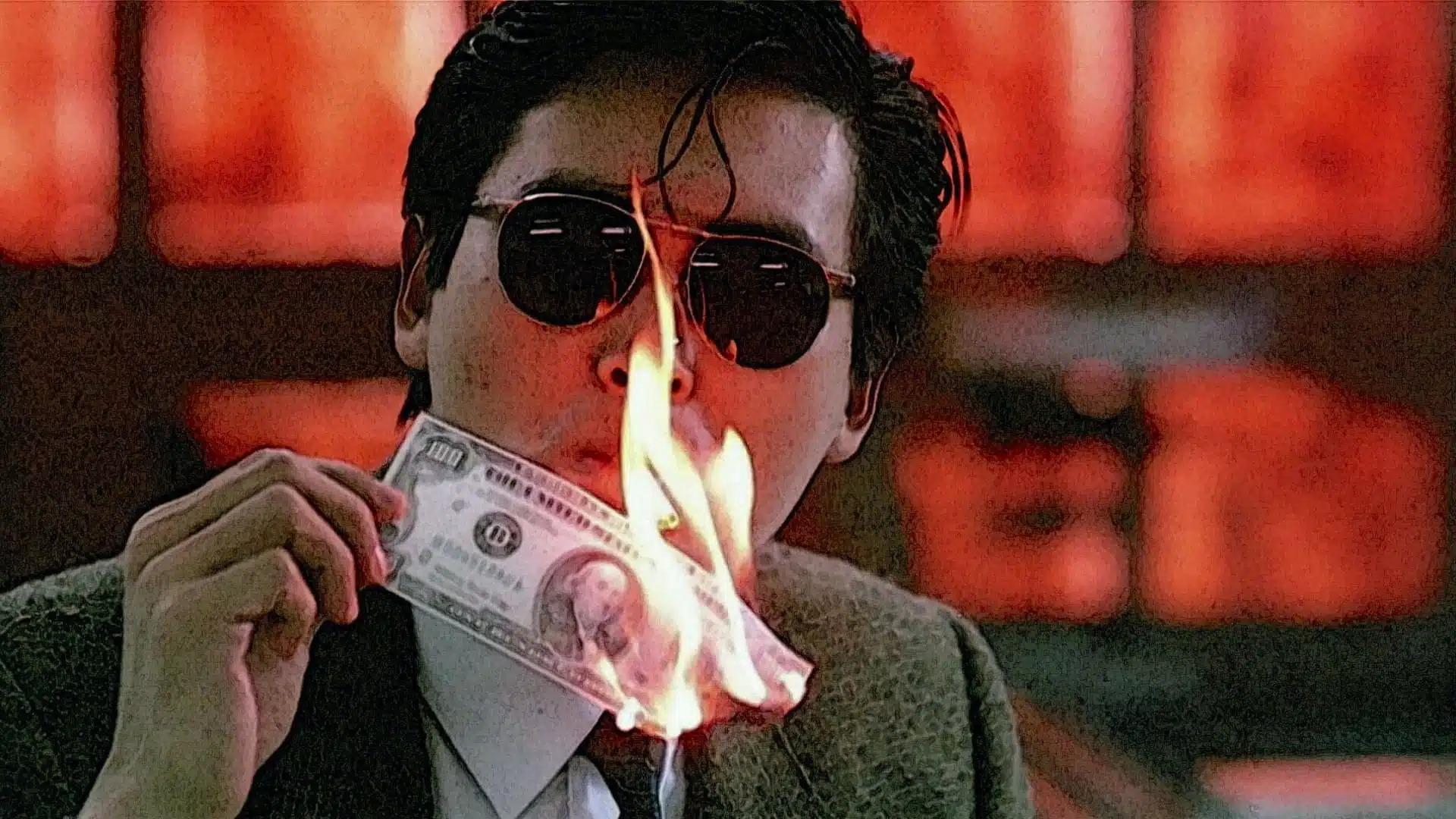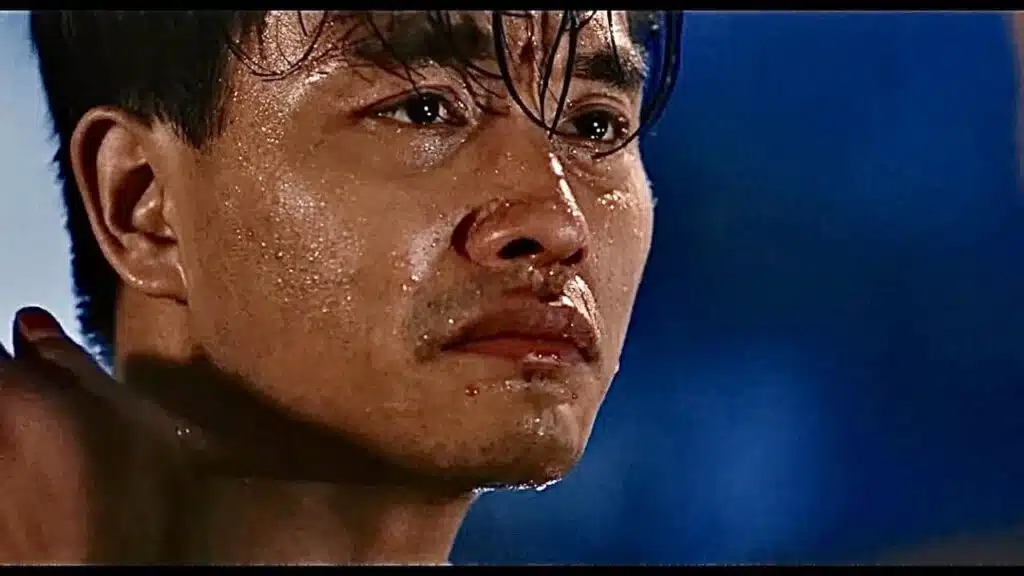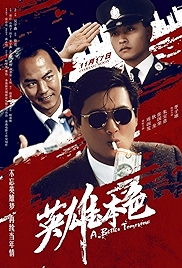John Woo’s woo-hoo moment came in 1986 with the release of A Better Tomorrow, the crime drama that revived his career, created the “heroic bloodshed” sub-genre and, ultimately, influenced the way action movies the world over would look.
It’s a simple story, of two brothers on either side of the legal divide. Leslie Cheung plays younger brother, Kit, a cop, while Ti Lung plays Ho, the older sibling who works, unbeknown to Kit, for a gangster. Woo and his co-writers, Chan Hing-Kai and Leung Suk-wah, are much more interested in the morally compromised Ho than the slightly peevish and almost dangerously vanilla Kit. What energy they have left they lavish on Ho’s sidekick, Mark, played by Chow Yun-fat (this was also the film that made him a star).
In short order the two gangster guys find themselves on the wrong side of a deal, with Ho going to jail and Mark getting badly injured. Fast forward three years in the future and the pair meet up again, now determined to go straight. There are obstacles. On one side Ho’s brother, convinced his brother is still a bandito. On the other the gang, certain Ho and Mark can be pulled back into the fold.
Heroic bloodshed, as the genre category suggests, is the result, with Ho and Kit in particular wrestling over codes of honour and the bonds of family while John Woo ladles on the stylistics. Men in long duster coats and cool shades, cityscapes that are glossy with excess, and the slo-mo double-fisted “gun fu” action that was to become John Woo’s trademark.
Woo borrowed this pre-occupation with style from Jean-Pierre Melville’s Le Samouraï (Chow is wearing Alain Delon sunglasses, in fact) and a lot of his trademark gun-battle operatics from Sam Peckinpah, then repurposed both to fit the Hong Kong milieu. Every action director who has followed in his wake has endorsed those decisions. The sideways lunge in slow-motion with two guns blazing, that’s from here. It’s particularly suited to Chow Yun-Fat’s Buddha-like demeanour.
If you’ve seen Michael Mann’s Heat you’ve seen the after-effects of this movie. Or the earlier films of Tarantino, particularly Reservoir Dogs. And, later, the the Samuel L Jackson/John Travolta relationship in Pulp Fiction seems to be modelled on the Ti/Chow pairing here – the walk-alike, dress-alike, too-cool attitude. The result of the extensive borrowing by later movies is that A Better Tomorrow does not look half as radical now as it did in 1986. On the other hand it doesn’t look half as old-fashioned as a lot of mid-1980s movies now do. This Woo style is still regularly to be seen four decades on.
A Better Tomorrow was a big hit in Hong Kong and even sparked a craze there for duster coats. Sad to relate that it’s not really a great movie, stylistics to one side. Woo’s love of a zoom shot to indicate that emotions are running high is corny. Chow overacts, even when not speaking. The sentimentality can get cloying. The soundtrack, with synth drums and rock guitar, was already hackneyed when the movie came out and sounds worse now, and Woo also goes all-in on the kung-fu style sound effects. The occasional outbreaks of knockabout comedy – a bit Jackie Chan – also seem a touch out of place.
The good stuff is good though. Even though there isn’t actually that much action, the shootouts are expertly choreographed and mined for maximum flash. Look out also for John Woo himself, as Inspector Wu, the most impassive, stony-faced character in the entire movie. That’s got to be an in-joke, right? And Tsui Hark, the film’s producer who took a gamble on Woo in the first place, also gets a cameo as a music judge in a scene where Kit’s accident-prone girlfriend, Jackie (Emily Chu), auditions with her cello. More comedic shenanigans. Look away. No, really.
A Better Tomorrow – Watch it/buy it at Amazon
I am an Amazon affiliate
© Steve Morrissey 2023


